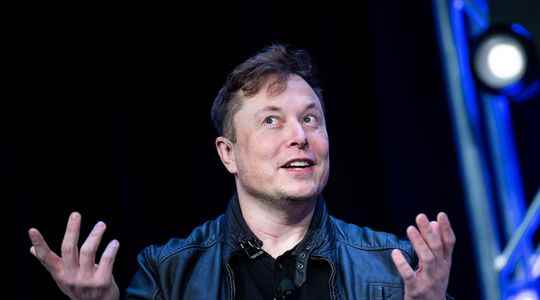It’s not just the conquest of space and electric cars in the life of Elon Musk. The billionaire, boss of Tesla, seems to want to play a role in the conflict between Russia and Ukraine. The South African-born entrepreneur began showing his support for the Ukrainian people as early as the end of February.
The latest boost Elon Musk wants to give Ukraine is crazy. On Monday March 14, the founder of the space company SpaceX proposed, on Twitter, “a man-to-man fight” to Russian President Vladimir Putin, without specifying the form that this duel would take. “Do you accept this fight?” he asked in another message, this time written in Russian and addressing the official Kremlin Twitter account. And faced with the incomprehension of a surfer, Elon Musk assured that he was “completely serious”.
Chechen President Ramzan Kadyrov, a staunch supporter of the Russian president and avid martial arts fan, then recommended the billionaire, whom he called “Elona”, not to “fight Vladimir Putin” because of their “weight categories too different”. “That wouldn’t be very sporting for Vladimir Vladimirovich [Poutine] to fight against a weaker opponent”, he commented on his Telegram account, offering Elon Musk to come “to train in several centers in the Republic of Chechnya”.
“Here we’ll tell you more about your obscure American PR methods [NDLR : relations publiques] and we’ll teach you how to keep your accounts on social media, he added. You will leave Chechnya feeling like a whole new person.”
“Starlink has arrived. Thank you Elon Musk”
This is not the first blow of brilliance of the boss of Tesla concerning the war in Ukraine on the network with the blue bird. In a series of incendiary tweets published on February 24, the director of the Russian space agency Roscosmos, Dmitry Rogozin, accused Washington of wanting to “destroy” cooperation around the International Space Station (ISS): without Russia, “who will save the ISS of an uncontrolled de-orbit and a fall on the United States or Europe?”, he asked, threatening.
Elon Musk replied two days later by posting a simple image of his company’s logo, before reaffirming his support for kyiv in a more frank way in early March, tweeting “Ukraine, hold on”, while sending his “friends to the great people of Russia, who do not want [la guerre]”.
The whimsical billionaire also responded to a cry for help from a Ukrainian official by activating the Internet service by Starlink satellite in the country, and by sending equipment to help bring an Internet connection to areas hit by Russian military assaults.
“Starlink has arrived. Thank you Elon Musk,” Ukrainian Deputy Prime Minister Mykhailo Fedorov, in charge of the digital sector, tweeted on February 26, posting a photo of a truck carrying Starlink terminals. “Please,” the SpaceX founder replied. Since then, a second shipment of terminals from Elon Musk’s Internet service has arrived in Ukraine. “Received the second shipment of Starlink stations! Elon Musk keeps his word! Thank you for supporting Ukraine and peace around the world!”, Mykhailo Fedorov said.
The American billionaire is accustomed to positions and controversies on Twitter, where he is followed by more than 77 million subscribers. In February, for example, he accused the regulator of the American Stock Exchange – which had imposed several sanctions on him – of seeking to muzzle his freedom of expression. He also compared Canadian Prime Minister Justin Trudeau to Adolf Hitler in a message of support for opponents of government health restrictions. A publication that he then deleted.
